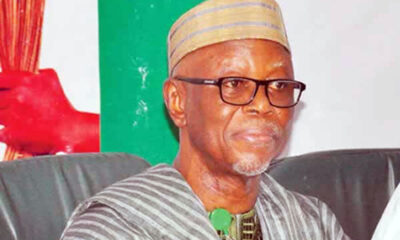Auto
Eight years after, Nigeria’s auto policy wobbles
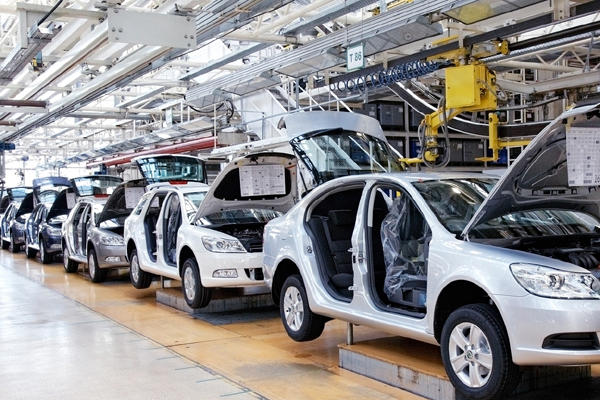
Stakeholders still await auto policy’s full implementation eight years after its introduction, FEMI OWOEYE reports
Although Nigeria’s auto policy was launched almost three decades ago (1993), a development framework was not initiated until two decades after (2013); that was under President Goodluck Jonathan’s regime.
The policy and its development plan were aimed at boosting the demand for made-in-Nigeria vehicles and encouraging Original Equipment Manufacturers (OEMs) to set up local vehicle manufacturing plants. Ultimately, it was expected to revitalize and grow the Nigerian automotive sector with a multiplier effect on the nation’s economy.
No doubt, as a result of the partly implemented policy, the sector, within the last seven years has not only generated an ample of employment, it has also grown with an installed capacity to assemble about 500,000 vehicles per annum.
To this end, the industry has attracted many OEMs such as Honda, Mitsubishi, Ford, Geely, Kia, Nissan, Hyundai, Sinotruck, Shackman, Dongfeng, XCMG, Peugeot, MAN, Yutong and FAW, which have opened investment lines to Nigeria, mostly in the form of technical partnership with Nigeria entrepreneurs.
The industry also generated direct investment by indigenous brands such as Honda, Innoson, Jetvan and Proforce.
However, due to poor policy administration and failure to implement certain essential provisions of the policy, it has suffered a summersault, recording constrained capacity utilization. That is why 28 years down the line, the nation’s auto industry stakeholders are still hopelessly awaiting full implementation.
Fielding questions from this writer, Mr Luqman Mamudu, former Director of Policy and Acting Director General of the National Automotive Design and Development Council (NADDC), reiterated that poor project implementation on the part of the Federal Government had caused a setback for the nation’s auto industry.
He said, “Seven years into its 10-year tenure, there has been practically no monitoring and evaluation of the policy, apart from initial sector report in 2016/17. All the associated programmes designed to create demand for vehicles assembled in Nigeria and grow local content have been abandoned by institutions responsible to do so.”
Moreover, auto finance provision, which in the original draft of the NAIDP was meant to grant affordable loans to Nigerians to acquire locally assembled vehicles, thereby creating demand and making the secondhand imports unattractive over the years, has been jettisoned.
As if that was not enough, the Federal Ministry of Finance, by Section 38 of Finance Act 2020, further worsened the situation by reducing the protective tariff for imported fully built unit (FBU) commercial vehicles from 35 per cent to 10 per cent, while imported semi knocked down (SKD) kits remain at 10 per cent.
“As a result,” Mamudu pointed out that “Nigerian ports and streets are now flooded with all manner of used commercial vehicles and cars with consequent depletion of the nation’s foreign reserves and a weakened naira.
“Sadly, although Nigeria has established tremendous capacity utilization in the commercial vehicle body building, now you do not have to build locally, just import.”
Following the invocation of the 2020 Finance Act, it has become more profitable to simply import vehicles for sale than venturing into local assembling.
Mamudu stated further, “Automotive assembly, especially final assembly, which dominates assembly activities in Nigeria, is certainly unprofitable to the assemblers compared to outright import. The protective tariff and levies are equally vexatious to many interests, as they wish to import freely.
“So, the implementation process needs to have been carefully managed to quickly ramp up to the CKD and components manufacture, where all would be happy.
“This is why the process requires close monitoring and adjustment to align with public concern. It is because there is no reasonable feedback that those who had earlier opposed the policy in the first place seem to be having the upper hand. The Finance Act 2020 with its devastating effects is one such example. It particularly accused the policy of slow or ineffective impact and set forth to remove the protective measures without consulting stakeholders.
“The implementation of the auto policy requires sacrifice from all in the interest of growing the real sector. But such sacrifice has its limit. The protective tariff was designed to be reduced as the industry gained traction, but it’s not being nurtured to do so.”
On the state of the NAIDP bill, Mamudu, who is now the Managing Partner, Transtech Industrial Consulting, said the last information he had was that the bill was under expert review.
In his view, however, the reviewed draft of the NAIDP should be shared for stakeholders’ input, particularly the Nigeria Automotive Manufacturers Association (NAMA) before its final passage and signing into law.
Being the largest economy in Africa, Nigeria has in the past six years been under pressure from the OEMs to complete the implementation circle of its auto industry development policy. The OEMs could see Nigeria becoming an automotive manufacturing hub of the continent.
But as of the time of putting this story together, the nation’s auto policy remains under a dark silence. Even stakeholders are also in the dark.
In the meantime, while importers of used vehicles and new fully built units smile to the bank, the nation’s economy bleeds.
– Nigeria Auto Journal, December 2021
Auto
MOMAN, ALCMAN Partner BKG to Drive Nigeria’s Shift from Auto Imports to Industrial Production
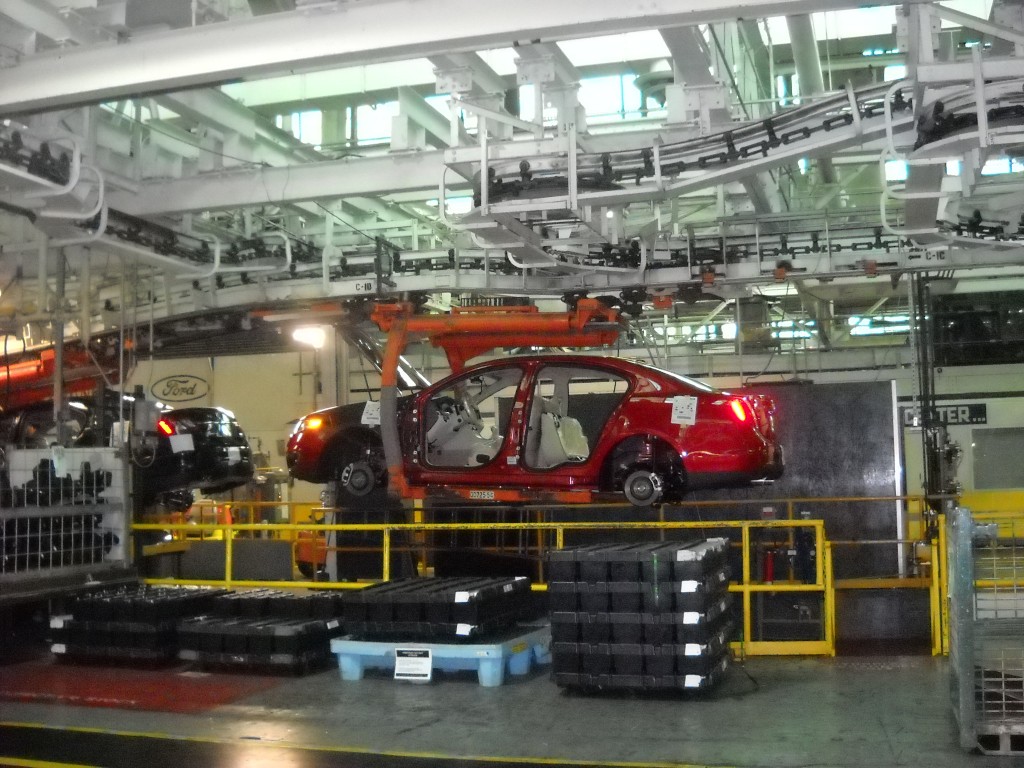
MOMAN, ALCMAN Partner BKG to Drive Nigeria’s Shift from Auto Imports to Industrial Production
In what industry stakeholders view as a decisive move toward industrial rebirth, BKG Exhibitions Limited has entered into a strategic partnership with the Motorcycle Manufacturers Association of Nigeria (MOMAN) and the Automotive Local Content Manufacturers Association of Nigeria (ALCMAN) to accelerate local automotive manufacturing and reduce the country’s heavy reliance on imports.
The alliance, formalised in Lagos, signals a coordinated private-sector effort to reposition Nigeria’s automotive ecosystem from an import-dependent market to a production-driven industrial base capable of delivering value addition, technology transfer, and large-scale employment.
For decades, Nigeria’s automotive sector has been dominated by the importation of fully built vehicles and, more recently, the assembly of semi-knocked-down (SKD) and completely knocked-down (CKD) kits.
While these models generated commercial activity, stakeholders argue they failed to build deep industrial capacity or strengthen indigenous engineering expertise.
The new partnership seeks to change that narrative by transforming trade exhibitions into structured industrial platforms that connect manufacturers with policymakers, institutional buyers, investors, and international technical partners.
A senior executive at BKG Exhibitions said the collaboration represents a deliberate shift in strategy.
“Exhibitions must go beyond passive marketplaces. They must become engines of economic transformation where Nigerian manufacturers secure contracts, attract capital, and demonstrate production competence,” he said, noting that Nigeria already possesses strong demand but lacks a coordinated ecosystem to convert that demand into domestic output.
“Nigeria remains one of Africa’s largest mobility markets, driven by rapid urbanisation, a growing youth population, and expanding last-mile logistics services.
“Motorcycles and tricycles play a critical role in urban transport, agriculture distribution, and the fast-growing delivery economy.
“However, a substantial portion of these vehicles and their components are imported, placing pressure on foreign exchange and limiting domestic industrial growth.”
MOMAN President Rev. Lambert Ekewuba emphasized that strengthening local production would go beyond import substitution.
“When we manufacture locally, we create jobs, retain capital, and build the technical foundation for advanced automotive engineering,” he said.
ALCMAN Chairman, Chief Anselm Ilekuba, stressed the importance of developing a resilient components ecosystem, describing it as the backbone of any successful automotive industry.
“No country becomes an automotive powerhouse without first nurturing strong supplier networks. Nigeria must empower small and medium-scale enterprises producing metal parts, plastics, electrical systems, and other inputs,” he said.
Under the alliance, future exhibitions will feature dedicated pavilions showcasing Nigerian-made components and vehicles, offering manufacturers direct access to government agencies, transport operators, and regional distributors.
Analysts believe such curated exposure could gradually shift procurement patterns toward locally produced alternatives.
Beyond the domestic market, the partnership aims to position Nigeria as a manufacturing hub serving West and Central Africa, leveraging opportunities under the African Continental Free Trade Area (AfCFTA).
Industry leaders say expanding export capacity will depend on strengthening standards, financing mechanisms, and technical capability.
The alliance also plans coordinated advocacy for policies that support localisation, including improved access to financing, reduced duties on industrial machinery, technical training aligned with modern production systems, and procurement frameworks favouring locally manufactured goods.
Economists argue that a revitalised automotive manufacturing base could stimulate growth across steel, petrochemicals, logistics, warehousing, and tooling industries, reinforcing the sector’s role as a catalyst for broader industrialisation.
Coming at a time when Nigeria is intensifying efforts to diversify its economy away from oil dependence, stakeholders say the success of this alliance could mark a turning point — shifting the country from being one of Africa’s largest automotive consumption markets to an emerging centre of production, innovation, and regional trade.
Auto
Appeal Court Ruling on VIO Limited to Abuja, Not Lagos — LASG
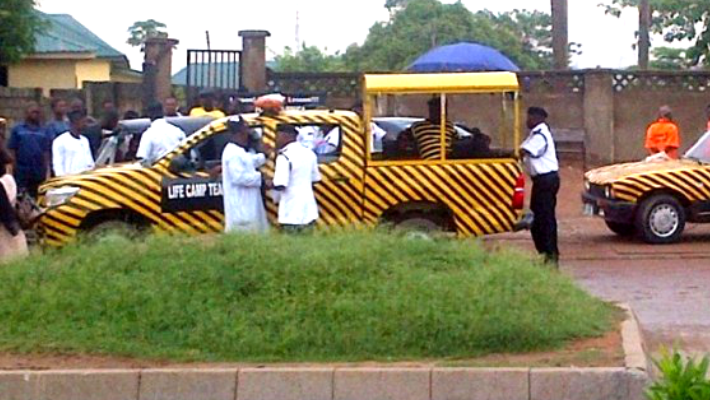
Appeal Court Ruling on VIO Limited to Abuja, Not Lagos — LASG
The Lagos State Government has dismissed widespread claims that a recent Court of Appeal judgment has stripped Vehicle Inspection Officers (VIOs) of their powers across Nigeria, insisting that the ruling applies strictly to the Federal Capital Territory (FCT).
The clarification follows public reactions to a decision of the Court of Appeal, Abuja Division, which upheld an earlier ruling of the Federal High Court restraining Vehicle Inspection Officers and the Directorate of Road Traffic Services in the FCT from stopping motorists, impounding vehicles, or imposing fines.
The judgment triggered viral interpretations suggesting that VIO operations had been outlawed nationwide.
However, Lagos State Attorney-General and Commissioner for Justice, Lawal Pedro, SAN, described such interpretations as legally inaccurate and misleading.
Basis of the Court Decision
According to Pedro, both the Federal High Court and the Court of Appeal premised their decisions on the absence of statutory authority empowering VIO officials in the FCT to stop, impound, confiscate vehicles, or impose fines on motorists.
READ ALSO:
- Terror in Lagos Traffic: Cutlass Gang Unleashes Mayhem on Mile 12–Ketu Road
- FG Drags El-Rufai to Court Over Alleged NSA Phone Interception
- Mystery in Lekki: Police Probe Death of Two Nollywood Crew Found Lifeless in Parked Car
“It is important to understand that the Honourable Judge of the Federal High Court and Justices of the Court of Appeal premised their decision on absence of statutory power conferred on the Respondents to stop, impound or confiscate vehicles and/or impose fines on motorists on roads in FCT Abuja,” he stated.
He noted that the courts did not declare vehicle inspection enforcement unconstitutional in Nigeria, but rather ruled specifically on the legal framework governing the FCT authorities involved in the suit.
Why Lagos Is Different
The Lagos government stressed that Nigeria’s federal structure allows states to legislate on residual matters such as road traffic management and vehicle inspection.
Pedro explained that Lagos operates under the Lagos State Transport Sector Reform Law, which expressly establishes and empowers the Vehicle Inspection Service (VIS).
Section 12(1) of the law authorises the VIS to:
Inspect and regulate the roadworthiness of vehicles
Conduct pre-registration inspections
Issue Road Worthiness Certificates
Collaborate with other relevant agencies to enforce traffic laws
In addition, Section 23(1) provides for penalties against offenders, subject to adjudication before mobile or magistrate courts, ensuring judicial oversight.
Not of Nationwide Effect
While acknowledging that the appellate decision is binding within the FCT, the Lagos government emphasised that it does not have automatic nationwide application.
“The judgment, though binding, is not of general application or of nationwide effect in Nigeria,” the ministry stated.
The state government stressed that VIS officers in Lagos remain legally empowered to carry out enforcement duties under extant state laws.
Wider Implications
The controversy underscores ongoing debates over traffic enforcement powers in Nigeria, particularly the constitutional boundaries between federal and state authorities.
Legal analysts note that unless the Supreme Court delivers a broader pronouncement on the issue, enforcement powers will continue to depend largely on the specific statutory framework establishing such agencies in each jurisdiction.
For now, Lagos authorities insist that vehicle inspection and traffic enforcement operations in the state remain valid and legally grounded.
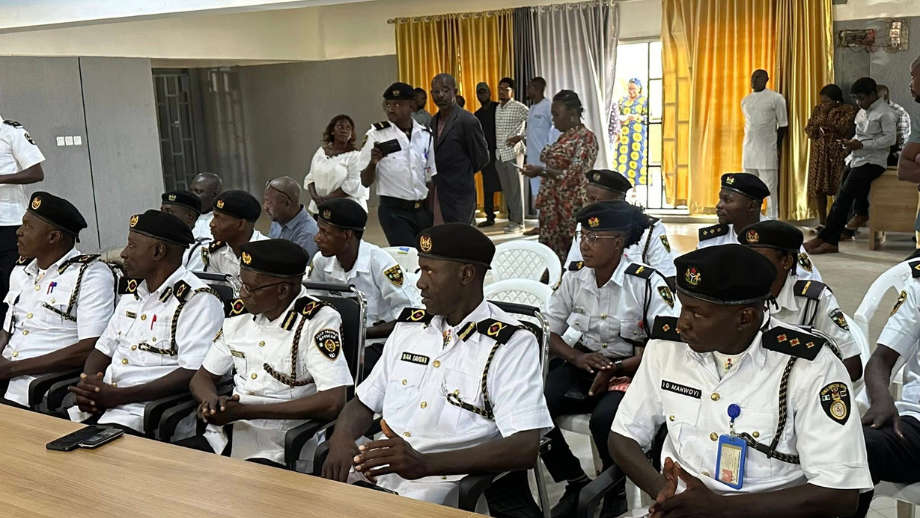
Appeal Court Ruling on VIO Limited to Abuja, Not Lagos — LASG
Auto
Chanrai Storms Nigeria’s Gas Market, Unveils High-Capacity CNG, LNG Solutions to Power Energy Shift

Chanrai Storms Nigeria’s Gas Market, Unveils High-Capacity CNG, LNG Solutions to Power Energy Shift
By Rasheed Bisiriyu
Nigeria’s drive towards cleaner and more affordable transport fuel gathered fresh momentum on Friday as Chanrai Nigeria Limited formally entered the country’s gas distribution space, unveiling high-capacity CNG and LNG compression technologies in Lagos.
The company, a member of the globally diversified Kewalram Chanrai Group, announced a strategic partnership with India’s Tulip Compression to roll out advanced compressor packages and integrated “single window” CNG solutions aimed at accelerating the Federal Government’s Presidential CNG Initiative.
Chief Operating Officer of Chanrai Nigeria Limited, Anil Sahgal, described the Tulip CNG Compressor Packages as a “game-changer” for Nigeria’s evolving energy landscape.
“With our commitment to safety, efficiency and OEM-grade partnership, we’re empowering the nation to achieve its CNG ambitions while driving economic growth and environmental sustainability,” Sahgal said.
The move marks Chanrai’s expansion beyond its traditional business interests — which span automobiles, agro-products, healthcare and fast-moving consumer goods — into the fast-growing gas infrastructure segment, as fleet operators and industrial users increasingly seek alternatives to petrol and diesel.
Under the partnership, Chanrai Nigeria and Tulip Compression will deliver Compression Station on Single Window (CssW) solutions — integrating compressors, dispensers, storage and stainless-steel tubing under one brand — to simplify deployment and reduce installation timelines.
The compressor packages come in a wide capacity range, from 250 to 4,500 standard cubic metres per hour, making them suitable for small refuelling stations as well as large gas hubs.
A 1,400 SCMH gas engine-driven booster compressor is designed to refuel heavy-duty CNG trucks in about 20 minutes by drawing gas from tube trailers.
The systems are available in both electric motor-driven and gas engine-driven configurations, eliminating the need for large gas generators while ensuring energy efficiency and lower life-cycle costs.
According to the company, the equipment features dual-chamber leak-proof safety systems, advanced sealing technology to eliminate gas loss and global certifications including ATEX, CE, BIS and SGS standards.
The unveiling underscores the growing private sector response to government reforms encouraging gas adoption as a cost-effective and environmentally friendly alternative fuel.
With the compressor packages now available for immediate orders, Chanrai Nigeria said it would provide 24/7 after-sales support, operations and maintenance services, as well as remote asset monitoring solutions.
The development signals intensifying investment in CNG infrastructure as Nigeria seeks to deepen local gas utilisation, reduce fuel import dependence and cushion consumers from volatile petrol prices.
-

 Business2 days ago
Business2 days agoDangote Opens Refinery Investment to Nigerians With Public Share Sale Plans
-

 Education2 days ago
Education2 days agoUTME: JAMB Clarifies Position on Hijab During Biometric Capture
-

 Politics2 days ago
Politics2 days agoTinubu Hails Wike as APC Dominates 2026 FCT Area Council Elections
-

 Entertainment2 days ago
Entertainment2 days agoRegina Daniels Takes Delivery of ₦150m 2026 GAC Trumpchi M8 SUV
-

 Politics3 days ago
Politics3 days agoADC Defeats APC to Win First Polling Unit in FCT Area Council Election
-

 Politics2 days ago
Politics2 days agoFCT Council polls: APC Wins Four Chairmanship Seats as PDP Takes Gwagwalada
-

 News2 days ago
News2 days agoYoruba Muslim Group Dismisses Viral Ramadan Date Claim, Reaffirms Sultan of Sokoto’s Authority
-

 Politics2 days ago
Politics2 days agoOpposition Weakens as Another Governor Eyes APC Move











